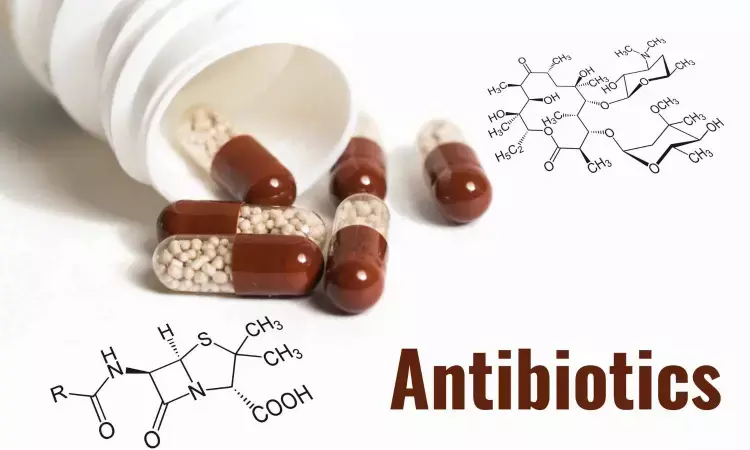- Home
- Medical news & Guidelines
- Anesthesiology
- Cardiology and CTVS
- Critical Care
- Dentistry
- Dermatology
- Diabetes and Endocrinology
- ENT
- Gastroenterology
- Medicine
- Nephrology
- Neurology
- Obstretics-Gynaecology
- Oncology
- Ophthalmology
- Orthopaedics
- Pediatrics-Neonatology
- Psychiatry
- Pulmonology
- Radiology
- Surgery
- Urology
- Laboratory Medicine
- Diet
- Nursing
- Paramedical
- Physiotherapy
- Health news
- Fact Check
- Bone Health Fact Check
- Brain Health Fact Check
- Cancer Related Fact Check
- Child Care Fact Check
- Dental and oral health fact check
- Diabetes and metabolic health fact check
- Diet and Nutrition Fact Check
- Eye and ENT Care Fact Check
- Fitness fact check
- Gut health fact check
- Heart health fact check
- Kidney health fact check
- Medical education fact check
- Men's health fact check
- Respiratory fact check
- Skin and hair care fact check
- Vaccine and Immunization fact check
- Women's health fact check
- AYUSH
- State News
- Andaman and Nicobar Islands
- Andhra Pradesh
- Arunachal Pradesh
- Assam
- Bihar
- Chandigarh
- Chattisgarh
- Dadra and Nagar Haveli
- Daman and Diu
- Delhi
- Goa
- Gujarat
- Haryana
- Himachal Pradesh
- Jammu & Kashmir
- Jharkhand
- Karnataka
- Kerala
- Ladakh
- Lakshadweep
- Madhya Pradesh
- Maharashtra
- Manipur
- Meghalaya
- Mizoram
- Nagaland
- Odisha
- Puducherry
- Punjab
- Rajasthan
- Sikkim
- Tamil Nadu
- Telangana
- Tripura
- Uttar Pradesh
- Uttrakhand
- West Bengal
- Medical Education
- Industry
Oral chloramphenicol effective treatment option for resistant non-gonococcal urethritis: BMJ

UK: Non-gonococcal urethritis is a common sexually transmitted infection caused by Mycoplasma genitalium that has become increasingly difficult to treat with currently recommended antibiotics.
Researchers have reported novel use of oral chloramphenicol for treatment-resistant Mycoplasma genitalium (M. genitalium) infection in a 20-year-old heterosexual cisgender male presenting with recurrent symptomatic non-gonococcal urethritis.
The case study published in the journal Sexually Transmitted Infections has described the case of a man with Mycoplasma genitalium (non-gonococcal) urethritis who was successfully treated with chloramphenicol.
"An oral antibiotic tablet used to treat common eye infections may prove an effective medicine for a sexually transmitted bug resistant to the usual recommended treatment," the researchers wrote in their study.
Data from the UK Health Security Agency suggest rising antimicrobial resistance to first and second-choice drugs used to treat this infection. At the same time, there’s currently no strong evidence for third-choice options, say the authors.
The young man initially turned up at the clinic with 2-day-old symptoms a fortnight after having unprotected sex with a casual partner.
He was initially treated with a week’s course of doxycycline, pending test results to identify the exact bacterial cause of his infection.
The results showed that he was infected with M genitalium, and he has then prescribed another antibiotic, azithromycin. Once the lab analysis revealed that it was a treatment-resistant strain, he was given a third antibiotic, moxifloxacin.
But 5 days after completing all the courses of antibiotics, he still had symptoms. After considering other options dismissed due to cost, availability, or licensing issues, the authors decided to try chloramphenicol: 1g tablet taken four times a day for 14 days.
Their decision was prompted by test tube evidence showing that chloramphenicol stopped M genitalium in its tracks and the ready availability of the drug.
After 14 days of treatment, the young man’s symptoms had cleared up, and lab tests confirmed that he no longer had urethritis.
This is just one case; the findings should be taken in that context. But point out the authors: “When considering what to choose after first- and second-line treatment failure, there is a lack of novel agents readily available in the UK, and a paucity of data to underpin recommendations.”
Chloramphenicol is generally well tolerated, with the serious side effects rare (1 in 30,000), they highlight. And in the absence of viable effective alternatives, it merits further investigation, they suggest.
“Options for third-line therapies in treatment-resistant M genitalium are urgently required. Chloramphenicol may have an application in this scenario and should be considered as a possible drug for investigation,” they conclude.
Reference:
Goodfellow JJ, Hughes S, Smith J, et alNovel use of oral chloramphenicol for treatment-resistant Mycoplasma genitalium Sexually Transmitted Infections Published Online First: 30 January 2023. doi: 10.1136/sextrans-2022-055621
Dr Kamal Kant Kohli-MBBS, DTCD- a chest specialist with more than 30 years of practice and a flair for writing clinical articles, Dr Kamal Kant Kohli joined Medical Dialogues as a Chief Editor of Medical News. Besides writing articles, as an editor, he proofreads and verifies all the medical content published on Medical Dialogues including those coming from journals, studies,medical conferences,guidelines etc. Email: drkohli@medicaldialogues.in. Contact no. 011-43720751


